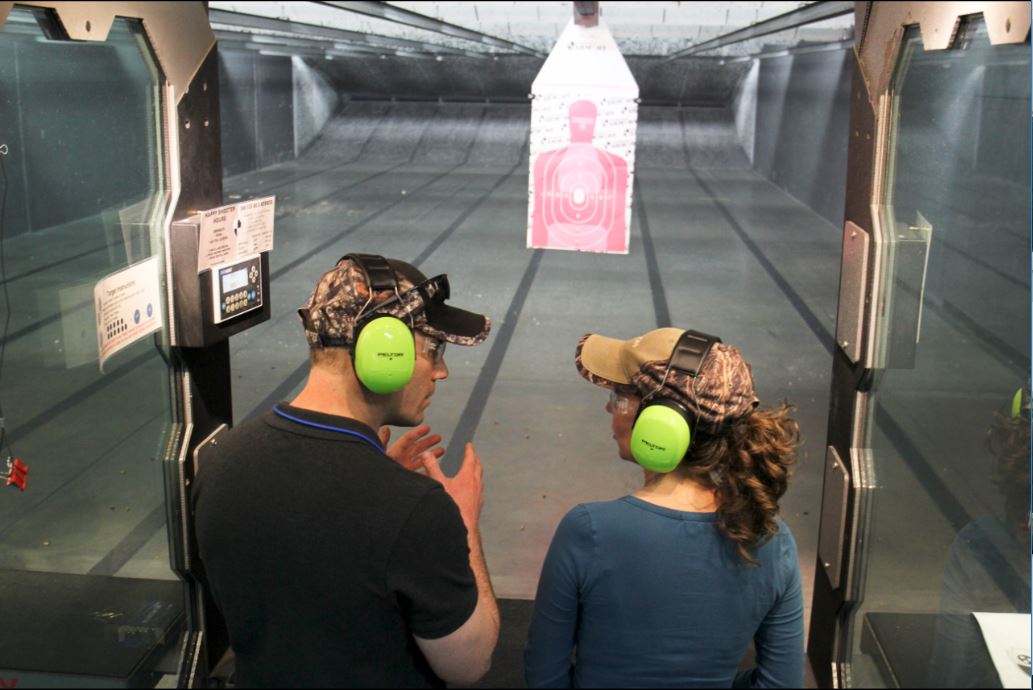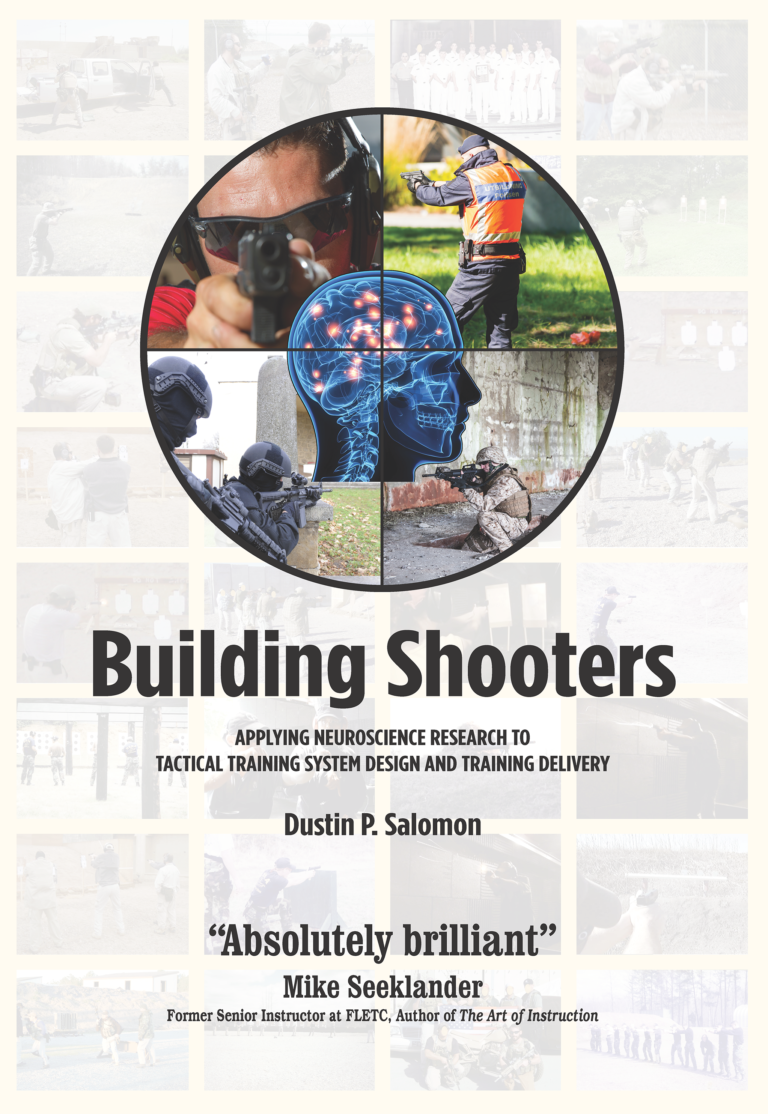We’ll begin with a definition. At BUILDING SHOOTERS we aren’t terribly wrapped up in specific terminology. Typically concepts are far more important; however, for effective communication to occur, it is useful for words to mean specific things. Therefore, when we say “mentoring” in this context, we are talking about a knowledgeable and experienced person facilitating and guiding the growth of another person (or persons) through experience and learning.
As you hopefully noticed, this process starts with a person who already possesses the knowledge and skills that they will be passing along. This means that, if you don’t know what you’re doing, don’t pretend you do, and don’t teach people what you don’t know yourself.
For those who just took offense, every person reading this (as well as the person writing this) fits this description of “not knowing what they are doing.” It’s simply a question of the specific subject matter.
Some readers of this article probably have the knowledge and experience to teach close quarters battle and hostage rescue, others vehicle interdiction and high-risk warrants.
Some may possess none of these (or many other) “tactical” skills, yet may have vast amounts of skill and knowledge in other shooting related skills and disciplines such as trap and skeet, long-range precision shooting, bullseye shooting, competitive practical shooting, or reloading. Still others may have a functional skillset that, at present, stops at loading and unloading their own firearm safely. Some readers may not possess any firearms skills or knowledge at all. If this is you, welcome to our page and thanks for reading, please don’t mentor somebody just yet though—learn first!
The point, we hope, is clear. Know yourself first and mentor others only within your own scope of knowledge and experience. It’s OK if that scope ends somewhere short of the long-term goals or desired knowledge of the person you’re mentoring (and it very well may). You can still set the people you mentor up for success and put them way ahead in the game. Even just ensuring someone knows how to load, unload, and safely carry a gun to and from the range is tremendously valuable (and, unfortunately, often overlooked).
The firearms training industry has changed a lot over the past several decades. In years past, if you wanted to learn to really shoot, the options were pretty limited. There were a few big shooting schools out there such as Jeff Cooper’s Gunsite and Clint Smith’s Thunder Ranch, a handful of smaller, regional or local off-shoots and a limited number of “traveling road shows” comprised of either long-time professional instructors and/or champion competitors.
Mostly though, becoming a good shooter was a matter of trial and error, trying different techniques, asking questions from local folks you might encounter at the range or at a match, and generally patching together a functional skillset—often over decades.
Times are different now. Sometimes it seems that you can’t hardly turn around without finding somebody offering “advanced” firearms training, many of them sporting impressive resumes and, sometimes, even equally impressive personal skillsets.
Add to this the sheer volume of books, articles, web-based, and video-based materials covering everything from basic firearms overviews to advanced shooting skills and self-defense scenarios—it’s almost too much. The amount of varying methods, techniques, definitions, terms, systems, styles, equipment configurations, weapon platforms, you name it, can literally be overwhelming, even for experienced shooters.
When you only had a few places to go for training, it’s was easy to know where to start—though perhaps more difficult to actually get started. Now when there are a hundred different places to go, taking the first step is less of a logistical challenge but, in some ways, is maybe even more difficult. It’s no longer just making the decision to “pull the trigger” (pun intended). Now potentially dozens, if not hundreds, of other decisions are required with respect to “who,” “how,” and “where.”
This is one area where you, an experienced shooter, can be of great help to a newbie as a mentor, even if you don’t know everything about everything related to shooting, tactics, etc. (And, let’s face it, most of us don’t—certainly not this author). Even so, you can start somebody efficiently down the right path—the path to being a safe, competent firearms owner with a functional skillset that doesn’t limit their future potential.
Why should you spend the time and effort do to this? Here are three reasons.
First, it will actually make you a better shooter. Seriously. A lot of people, even highly-skilled people, simply “do what they do” when it comes to physical skill performance, often without truly understanding it themselves. When you take things to the next level and go beyond performing the skills, moving to actually teaching somebody else to do it just as well as you (or better), it can be an enlightening (and often humbling) experience.
Quite often you’ll have moments where you suddenly realize just how much you don’t know about something that five minutes ago you would have sworn you knew well. This gives you an opportunity to dig in and go learn—improving both your knowledge base and your own personal skillset to boot.
Second, informal mentoring environments are actually much more effective than most formal training environments when it comes to both learning and teaching these types of skills, especially the “basic,” fundamental components of shooting. And, what is “advanced” shooting, really?
I’m probably not telling you anything you don’t know when I say that it’s usually not a whole lot more than the basics—done very well. When does effective shooting ever truly amount to more than safety, adequate alignment of the gun with the target (yes, many rabbit holes to dive down here—fun and important discussions; this is not the right place for them), grip/hold, and management of the trigger?
Yes, these things are “basic.” It’s also absolutely incredible to contemplate how truly complex and detailed the technical application that amounts to doing them well can be.
There has been a trend in recent years within some parts of the training industry towards teaching around the simplest possible explanation for skill performance. Usually this is justified through demonstration of some end-of-performance-period result. At times this can be as absurd as a carry permit test, other times it can actually be a legitimate evaluation of skill-at-arms (though this is rare outside of “advanced” courses that are usually by invitation only).
Fine and dandy—this all makes people (including the instructor) feel good about themselves when the training period ends. Within the confines of the traditional training structures, this approach also makes some sense—the student simply can’t understand, much less learn, the nuanced details in that timeframe. However, this approach also, structurally, can make a student’s path to actual functional proficiency a lot longer and far more difficult.
I won’t re-explain it all here; if you wish you can review the underlying science in our first book Building Shooters and you can peruse many of our other, more technical, articles here at your leisure. Simply put though, the fact is that the standard way we teach people firearms skills doesn’t work very well because it doesn’t match how the human brain learns.
Making a cultural shift where more shooters learn the core fundamentals in a mentoring setting, has the potential to turn this entire equation on its head—and fast track new shooters to success. The distributed, less formal structures that are usually involved in mentoring can produce better, safer, more effective shooters and gun owners faster and more efficiently than virtually any other known training method. All it requires is a mentor who possesses the skills themselves, along with a little knowledge about how to make the characteristics of the human brain work in the student’s favor.
If I may include a shameless plug, our newest book, Mentoring Shooters, is a manual intended to help experienced shooters do precisely this. It explains and demonstrates the application of brain-based learning science to informal firearms training settings. If you’re looking for a manual about firearms skills, let me save you the time and money now. It’s not that and you’ll be disappointed. However, if you want to learn how to apply brain science and psychology research to effectively and efficiently train new shooters to become highly skilled, please give it a look.
Finally, the third reason you should mentor somebody this year is that mentoring provides you with an opportunity to “pay it forward” and contribute to not only a better, safer gun culture, but a better and safer society in general. Both our collective skillsets and our culture in the firearms and shooting world are deeply rich and highly beneficial to virtually everyone who participates in them. There are bad apples, but they are the rare exception, not the rule. If you’re reading this—you likely know this already.
Likewise, if you’re an experienced shooter, then you know that, way too many people “learn” a lot about guns, shooting, and gun culture from sources that are, shall we say, less than accurate and reliable, “fake news,” as it were.
Mentoring—when it’s done right—gives you an opportunity to positively impact this situation by providing someone real knowledge and functional skill (even if just how to safely unload a firearm).
A word of advice here, wherever you may sit on the political fence, let me encourage you to keep firearms mentoring interactions apolitical—especially if this may be a potential area of disagreement between you and a prospective student. This isn’t because politics-based issues and discussions aren’t important. They are. Rather, it’s because personal opinions tend to be similar to personal anatomical waste exit ports—everyone has a unique one, but they all generally tend to stink up close, and nobody wants one shoved in their face.
Irrefutable facts and actual, real-world performance, on the other hand, those tend to be relatively clean and universal. They also lead to the formation of sounder opinions.
If someone is interested enough to learn from you based on what you have to offer, help them become a safe, highly competent firearms owner (in whatever discipline). Conclusions will follow experiences—and these tend to be better formulated when the experiences a) aren’t unpleasant and b) are deeply rooted in facts and personal, experiential performance.
As we collectively roll into the new year, it looks to be one full of many possibilities. Take advantage of it. If you’re a knowledgeable, experienced shooter, we encourage you to take the time to mentor a new shooter. It’s an activity that’s not just worth their time—it’s well worth yours.

